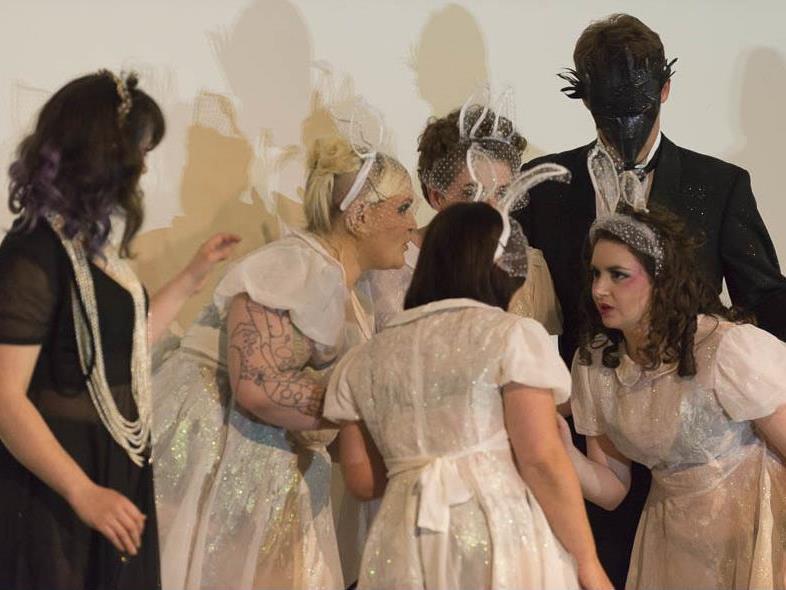The cast of La Traviata photography by Third Life Photography.
Watching an opera is an act of decadence. The emotions are excessive, the words drip in honey, the voices sonorous. Spoken word is banished for hours while song holds court in languages most audiences don’t understand. It’s absurd and that’s what makes it so wonderful. Much like an eleven course degustation, it’s not the kind of event you want to attend every day but for more or less the same price you can sometimes experience something equally profound. And in a sensual and excessive genre La Traviata is at the more excessive end. It was this over-the-top and unrestrained sense of purpose that was missing from BK opera’s production.
La Traviata tells the story of hedonistic courtesan Violetta (known for her legendary parties and liberality) and the earnest romantic Alfredo. In many ways they are opposites. He the bourgeois gentleman, she the common courtesan, he toasting true love and she responding with free love. But slowly she is won over and gives up her world of pleasure and excitement for true love. Though she misses her former life, she finds fulfilment in the quiet life she shares with Alfredo in the country but their happiness is shattered by a visit from Alfredo’s brother, Giorgio.
Giorgio demands that Violetta break off her relationship with his brother Alfredo as the scandal is threatening the proper marriage of their beloved sister. Giorgio expects to find a conniving gold digger but realises that Violetta is not after his brother for money and truly cares for him.
He is undeterred though and eventually convinces Violetta to end the relationship for the sake of Alfredo and his family, securing Violetta’s acquiescence by promising to tell Alfredo of her sacrifice at the proper time. When next Alfredo and Violetta meet, he is still hurt by her unexplained departure and when he sees her with his rival the Baron Douphol, his rage overwhelms him. He throws the fortune he has won at cards in Violetta’s face in payment for her services. The shock and shame break what little spirit Violetta still has but by the time the truth of her sacrifice is revealed it is of course too late and both Alfredo and Violetta are deprived of the happiness they deserved.
It’s a thrilling, fast paced story, performed for the first time against the backdrop of revolution running through Italy and Europe. Parallels between it and the liberality of post-war Berlin cabaret are not unjustified and yet in many aspects of BK opera’s production this was absent.
Leads Rada Tochalna and Patrick MacDevitt bring fine vocal abilities to Violetta and Alfredo but were let down by staging and lighting in particular, making it difficult for the audience to know whether the focus should be kept on main actors and the rest of the cast or for the audience to lose themselves fully in the story.
Capturing this vitality doesn’t mean expensive or overly-elaborate sets. But without adornments, a black-box approach to this most non-black box opera leaves little room for error and on this occasion the bright-line austerity and pumped-up contrast between pure performance and it’s setting that was needed was not achieved.
3 out of 5 stars
La Traviata
Artistic director: Kate Millet
Conductor: James Sybren Penn
Cast: Rada Tochalna, Patrick MacDevitt, Josh Erdelyn-Gotz, Beth Paterson, Alicia Groves, Lara Vosciano, Steve Carolane, Finn Gilheany, Lisa Lally, Adelaide Greenaway, April Foster, Katie Cookson
Repetiteur: Pam Christie





